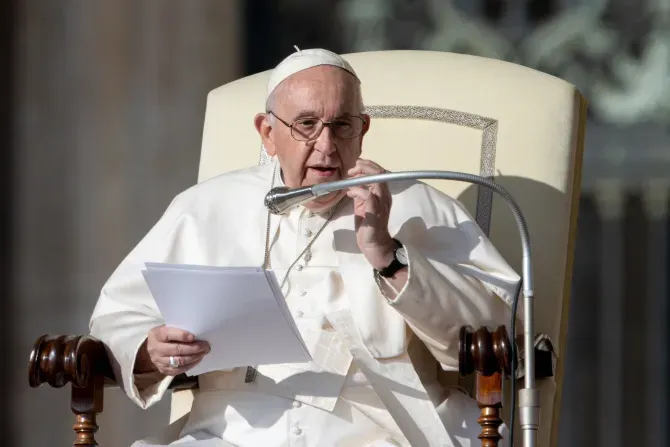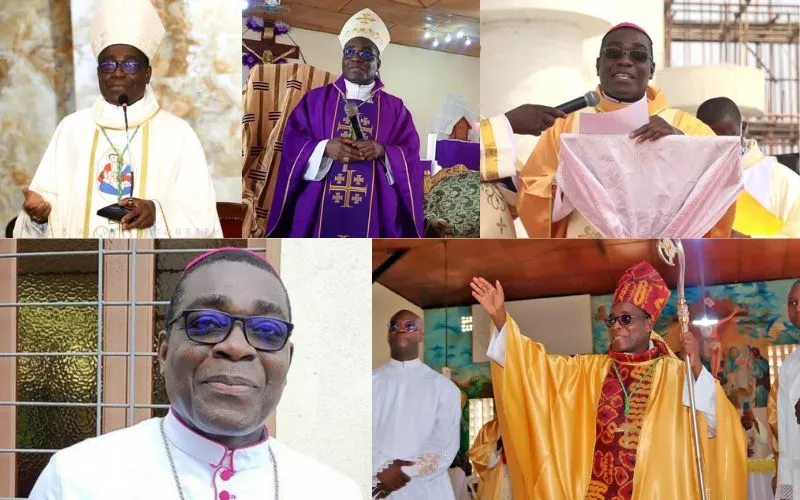On Aug. 31, Francis began a series of weekly catecheses, or messages, on discernment, which he described as “an exercise of intelligence, and also of skill and also of will, to seize the opportune moment” in order to make a good choice about one’s life.
“Desire, then,” he said in the livestreamed address on Wednesday, “is the compass to understand where I am and where I am going. Actually, it is the compass for whether I am standing still or going.”
Pope Francis addressed how someone can recognize desire within themselves in his message. “A sincere desire,” he said, “knows how to touch deeply the chords of our being, which is why it is not extinguished in the face of difficulties or setbacks.”
“Unlike a momentary craving or emotion, desire lasts through time, even a long time,” he explained.
 General audience on St. Peter's Square, Oct. 12, 2022. Daniel Ibáñez / CNA
General audience on St. Peter's Square, Oct. 12, 2022. Daniel Ibáñez / CNA
Pope Francis pointed to some of the pitfalls to knowing the desires of one’s heart; for example, society’s promotion of “the maximum freedom of choice,” while those “choices” are mostly reduced to just what is wanted most in the moment, not what will truly satisfy over the long term.
“We are bombarded by a thousand proposals, projects, possibilities, which risk distracting us and not permitting us to calmly evaluate what we really want,” the pope said, adding that many people go around “with their cell phones in their hands and they are searching, looking,” but never stopping to think or reflect.
“Desire cannot grow like that,” he said. “You live in the moment, satiated in the moment, and desire does not grow.”
Francis said that distraction can cause people a lot of suffering “because they do not know what they want from their lives; they have probably never got in touch with their deepest desire.”
Another pitfall the pope mentioned was the knowledge that one wants to do something but never actually takes action.
 Pope Francis greeting pilgrims on St. Peter's Square, Oct. 12, 2022. Daniel Ibáñez / CNA
Pope Francis greeting pilgrims on St. Peter's Square, Oct. 12, 2022. Daniel Ibáñez / CNA



 General audience on St. Peter's Square, Oct. 12, 2022. Daniel Ibáñez / CNA
General audience on St. Peter's Square, Oct. 12, 2022. Daniel Ibáñez / CNA
 The moon was visible over St. Peter's Basilica, Vatican, on the morning of Oct. 12, 2022. Daniel Ibáñez / CNA
The moon was visible over St. Peter's Basilica, Vatican, on the morning of Oct. 12, 2022. Daniel Ibáñez / CNA


